From May 17 to September 28, 2025, the Centre de la Vieille Charité in Marseille will host Tatouage. Histoires de la Méditerranée, an exhibition dedicated to the practice of tattooing in Mediterranean cultures, from its roots in antiquity to its contemporary interpretations. Sponsored by the Museums of Marseille, the exhibition addresses tattooing as a complex phenomenon, capable of crossing centuries, borders and expressive languages.
The exhibition itinerary starts from the first traces of tattoos detected in Egypt, Syria and the Cyclades, and then traces the course of Greek and Roman history, dwelling on the multiple uses, medical, religious, political, and aesthetic, that have characterized this practice over time. Tattooing is analyzed as a visual language capable of representing identity, belonging, dissidence. A trajectory that culminates in the most recent contemporary artistic expressions, influenced by global fashions and pop imagery, with a particular look turned to the city of Marseille, where the tattoo has established itself as a form of self-representation and as a distinctive sign of urban identity. The exhibition project is developed according to the methodologies of global art history, with a multidisciplinary approach that crosses national borders and embraces the Mediterranean in all its geographical and cultural complexity. From Italy to Algeria, the Balkans to Iran, Spain to Cyprus, the exhibition interweaves gender studies and postcolonial research, offering an updated reflection on a space marked by centuries of religious, commercial, artistic and cultural exchanges. Guiding visitors are paintings, sculptures, photographs, videos, objects from everyday life and contributions from archaeology, ethnology and anthropology, in a journey that combines historical evidence and contemporary visual practices.
A central core of the exhibition is devoted to Mediterranean artists who integrated tattooed motifs into their formal vocabulary, helping to nurture avant-garde currents, as well as feminist and decolonial movements. This strand picks up and deepens the research begun in 2023 with the exhibition Baya. Une heroine algérienne de l’art moderne. Unpublished works on display include those by Yohanne Lamoulère, Alireza Shojaian, Anne van der Stegen, Maya Benchikh el Fegoun dite El Meya, Samta Benyahia, Gaëlle Matata, Lalla Essaydi, Nil Yalter, and Shirin Neshat. The public will also be able to admire two drawings made in 1967 by AhmedCherkaoui, recently acquired by the city of Marseille in 2024.
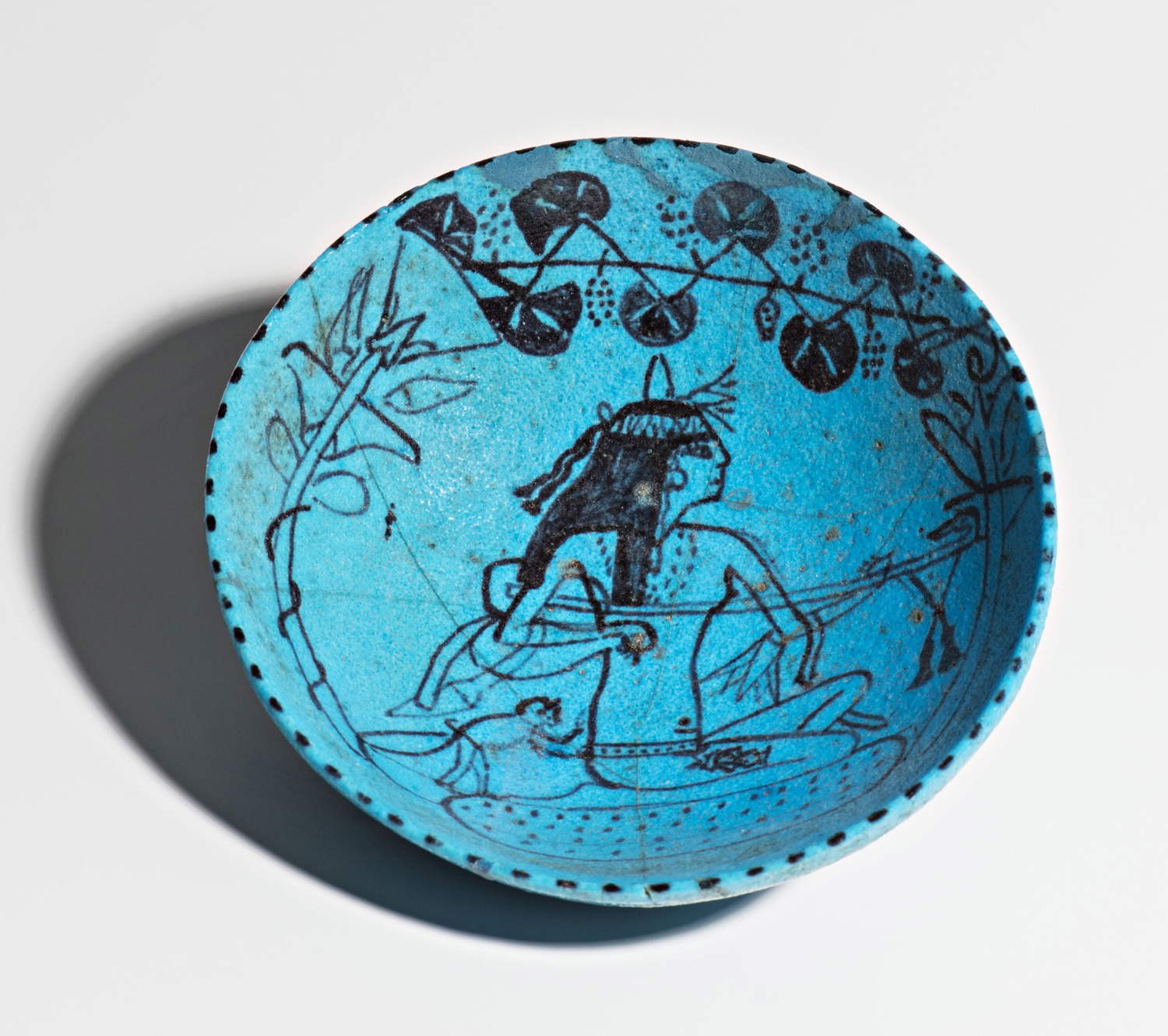
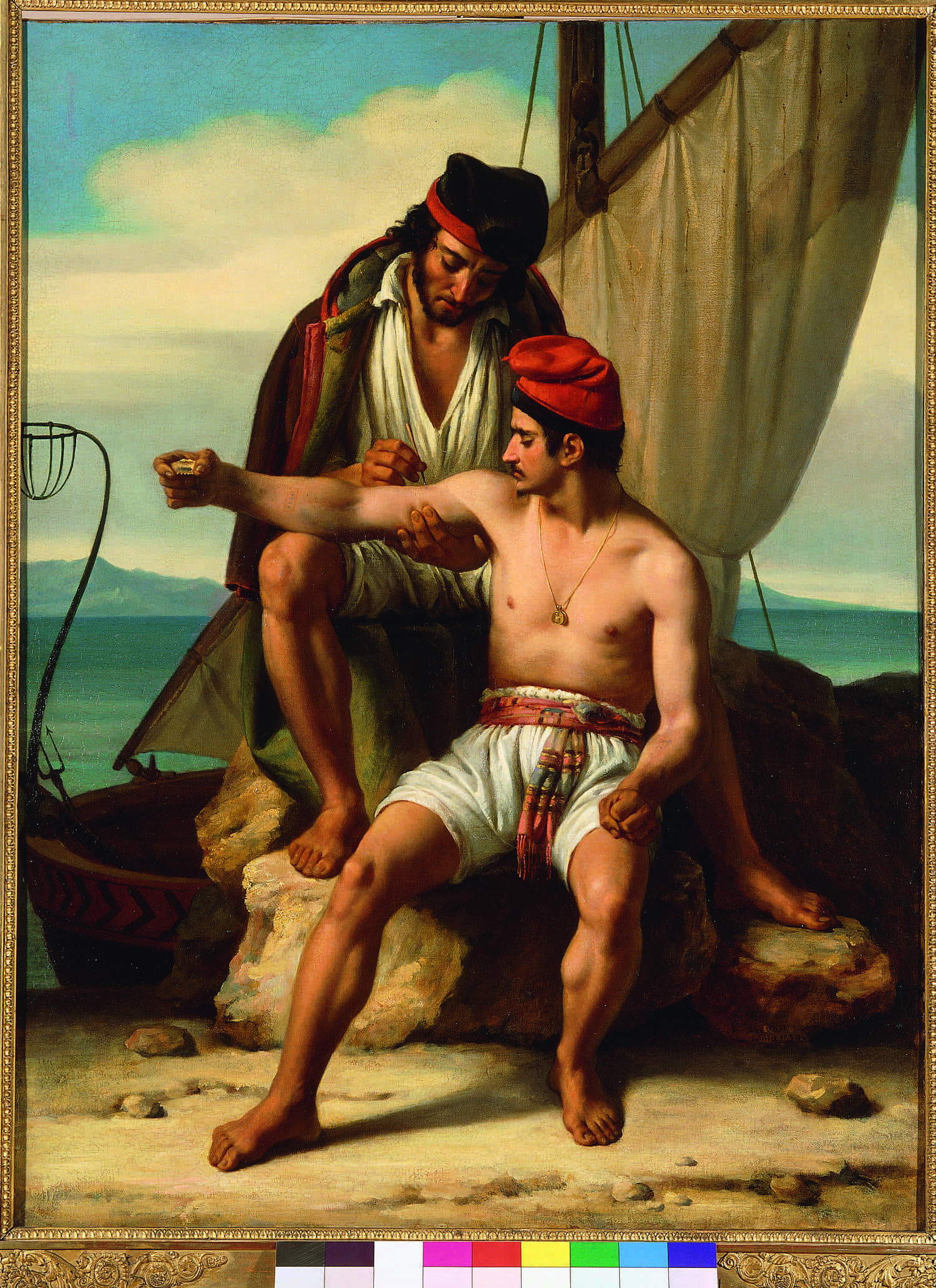
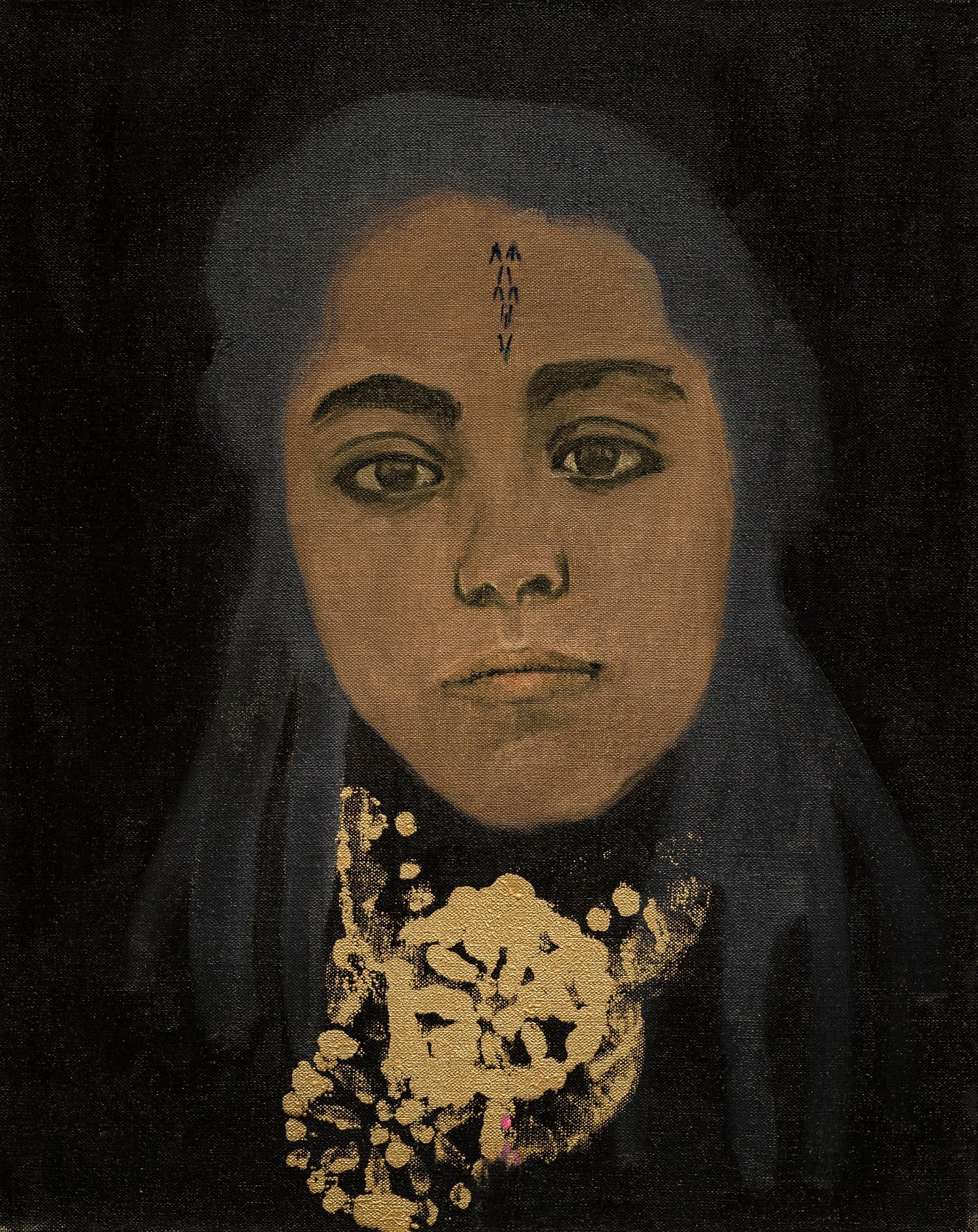
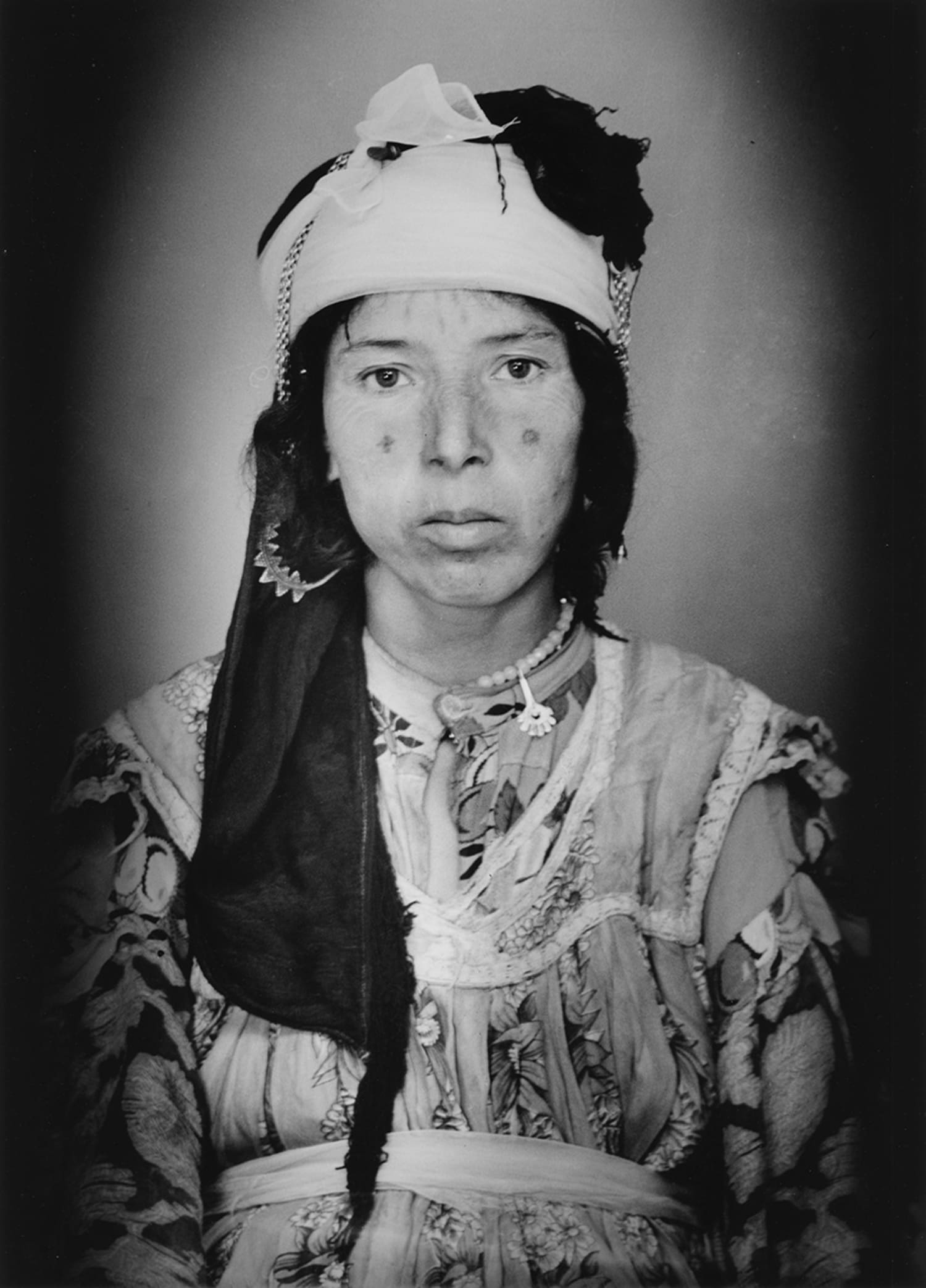
Another highlight is the presence of Denis Martinez, an Algerian artist and founder of the avant-garde collective Aouchem, a word that means “tattoos” in Arabic, which was formed in the mid-1960s. For the exhibition, Martinez will create a never-before-seen intervention on the walls of the Centre de la Vieille Charité, solidifying the link between his artistic practice and the exhibition’s underlying theme. Today the artist lives between Blida and Marseille, a city that has served as a crossroads for Euro-Mediterranean creatives, researchers and scholars for decades.
The exhibition benefits from important loans from national and international museum institutions, thanks to the collaboration with 24 ORE Cultura and with the exceptional support of the musée du quai Branly - Jacques Chirac. The museums involved include the Louvre, the Musée d’Orsay, the National Center for Visual Arts, the Rijksmuseum van Oudheden in Leiden, the Glyptothek in Munich, the Allard Pierson Museum in Amsterdam, the Museo Nazionale Etrusco di Villa Giulia in Rome, the Musei Civici in Pavia, and the Museo Archeologico Nazionale e Castello di Manfredonia. All dialogue with the heritage collections of the Marseille Museums, consolidating a cultural network that reflects the transnational dimension of the Mediterranean. In this perspective, Marseille confirms itself as the Euro-Mediterranean cultural capital. On the strength of the plurality of its population, its millennial history and the vibrancy of its artistic fabric, the city has been able to carve out a central role for itself in the European cultural scene. Since 2020, the city administration has launched an ambitious policy to ensure access to culture for all, promoting artistic experiences related to local heritage and Mediterranean identity. Marseille’s museum system, with a heritage of nearly 120,000 works and art objects from all eras and geographical areas, consists of 19 historical sites, including 12 museums recognized with the Musée de France label, 7 major historical monuments, 2 memorials, 3 preservation centers, and 5 documentation spaces and specialized archives.
“An expression of the self, of one’s identity, a sign of belonging or being part of a community, tattooing interrogates the body as a medium for art and intimacy,” argues Benoît Payant, Mayor of Marseille. “It is a sign of personal memory as much as of a shared heritage. Long relegated to a primitive art, a sign of marginality, it is now entering art history through the front door. The city of Marseille, through the unique work carried out by its museums, has chosen to offer this centuries-old practice a rare institutional recognition. For the tattoo crosses eras, territories and societies. Transgressive, protective, medicinal, sacred, ornamental, its contemporary revival speaks deeply to the renewed need for identity, memory and self-narrative.”
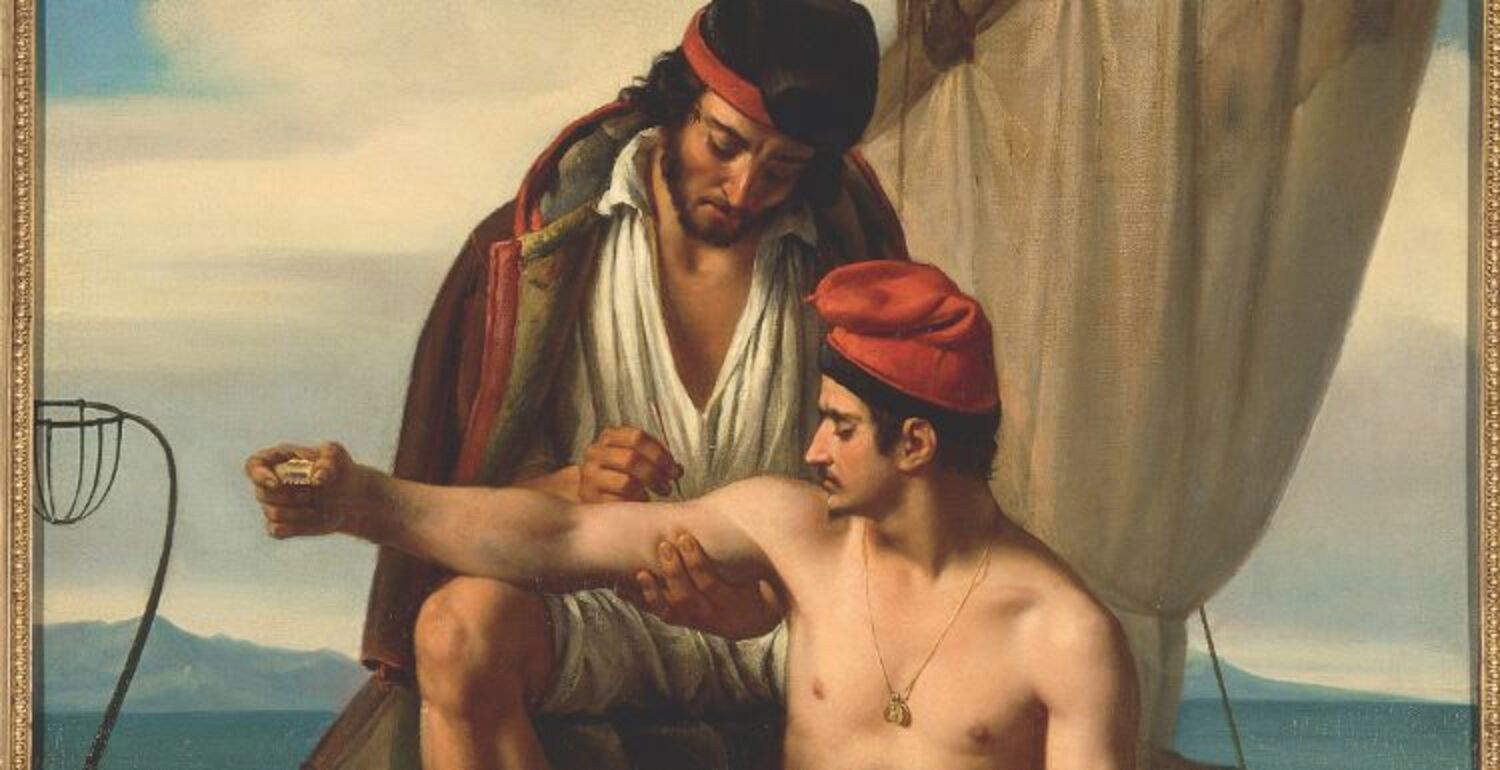 |
| A major exhibition in Marseille on the history of tattooing in the Mediterranean |
Warning: the translation into English of the original Italian article was created using automatic tools. We undertake to review all articles, but we do not guarantee the total absence of inaccuracies in the translation due to the program. You can find the original by clicking on the ITA button. If you find any mistake,please contact us.